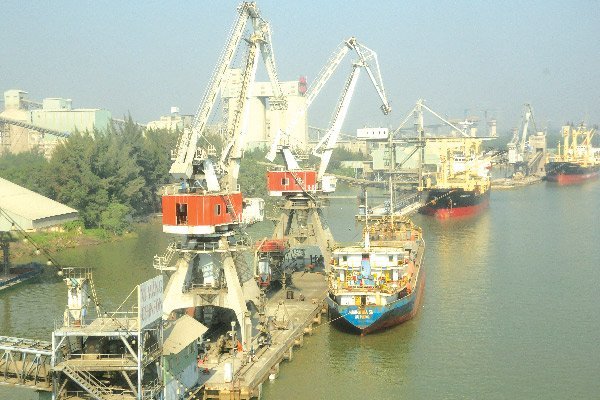[ad_1]
VietNamNet Bridge – To mitigate pollution caused by shipping operations and waste from seaports, experts say it is necessary to promote the development of environmentally friendly seaports.

Vietnam needs green ports
In many seaports, the content of oil on surface sea water is high. The oil waste from the vessels going in/out of large ports still cannot be collected and treated.
In addition, the emissions from vessels produced during fuel combustion also have an impact on the surrounding environment.
Sooyeob Kim, a specialist from the UN’s Socio-Economic Commission for Asia-Pacific, said at a forum on shipping industry and port development held recently, that now is the right time for Vietnam, a sea-borne economy, to develop environmentally friendly seaports. These are ‘green seaports’ which use solutions to use energy in the most effective way and reduce consumption of energy.
Nguyen Hoang Oanh from the Australia Maritime University, said to be able to develop in an environmentally friendly way, many ports in the world set maximum pollution indicators for vessels to observe.
In addition, they also apply necessary measures to reduce air pollution at ports and mitigate the impact from noise.
|
To mitigate pollution caused by shipping operations and waste from seaports, experts say it is necessary to promote the development of environmentally friendly seaports. |
“To build green ports, the most important thing Vietnam needs to do is set up a legal framework on the building and operation of seaports with provisions to ease the negative impact on the environment,” Oanh said.
Le Cong Minh, chair of the Vietnam Seaports Association, said there are existing regulations protecting the environment when building and operating seaports. The regulations can be found in the Environment Protection Law and the government’s decree on maritime activities management.
It will be difficult for seaports which have been operating for decades with old machines and infrastructure to become green.
The investments in collecting and treating domestic waste, industrial solid waste and waste water from vessels alone would be very costly. At Jurong port, for example, the installation of solar panels alone costs $30 million.
In the face of increasingly high requirements on environmental protection, some seaport developers have upgraded their equipment and strictly supervised operations to reduce the energy volume consumed and mitigate emissions.
SPCT in Nha Be district, HCM City, for example, is equipped with a high number of modern cranes which cut 50 percent of power consumed.
SPCT also asks vessels docking at the port to classify waste. The waste will be treated by onshore units with the fee paid by vessel owners.
RELATED NEWS
Vietnam wants more ecological IZs
Energy saving a blind spot for VN’s high-rise buildings
Kim Chi
[ad_2]
Source link
